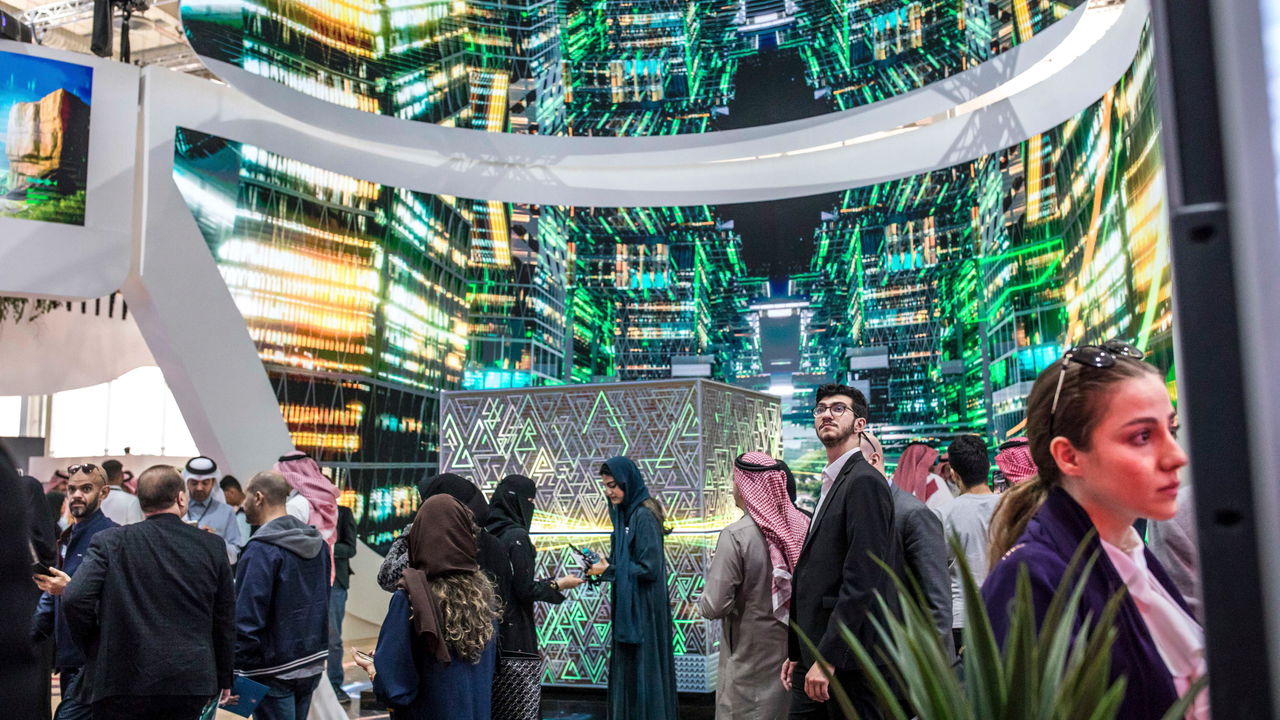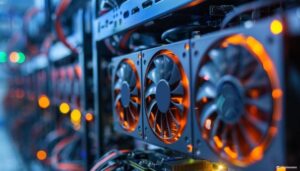
Your browser does not support the <audio> element.
THE MIDDLE EAST is something of a tech desert. One company trying to change this is G42, founded six years ago in the United Arab Emirates (UAE). More recently the state-backed firm has turned into the nerve centre of Emirati ambitions to become an AI powerhouse—and to spread the country’s broader influence in its neighbourhood and beyond. But rather than creating its own large language models (LLMs) of the sort that underpin AIs like ChatGPT, G42 wants to achieve this goal by developing the infrastructure of the AI economy and the real-world applications of the technology in industries such as health care and energy.
Even by AI’s frenetic standards G42 has had a busy couple of years. It has struck deals with OpenAI, creator of ChatGPT, and with Cerebras, a chipmaking upstart, to construct a new supercomputer. It is erecting data centres to accommodate vast cloud-computing workloads. It has teamed up with AstraZeneca, a European drugmaker (to manufacture “innovative” medicines in the UAE), and with the Mercedes Formula One racing team (for reasons that are vaguer still). Through investment vehicles co-founded with Mubadala and ADQ, two Emirati sovereign-wealth funds, it is also placing multibillion-dollar bets on startups around the world. And in April it found itself on the receiving end of a $1.5bn investment from Microsoft, the $3trn software behemoth whose own partnership with OpenAI has put it at the sharp end of the AI revolution.
All this dealmaking should furnish G42 with AI nous that, the UAE’s rulers hope, will help diversify the country’s economy away from hydrocarbons. This expertise can also be redeployed abroad—also partly in the service of Emirati statecraft. The company seems particularly keen on digital projects in places which the UAE sees as strategically useful. In Kazakhstan, where its compatriots are developing large renewable-energy projects, G42 has signed an agreement with that country’s sovereign-wealth fund to, among other things, smarten up the Kazakh energy grid.
The company has been especially busy in Africa, a continent across which the UAE is opening embassies, building ports and developing oil-and-gas projects. In Angola, Gambia and Kenya, G42 is helping develop data centres. In Senegal and Zambia it is assisting governments in digitising public services.
Whether all this elevates G42 to global AI stardom is up for debate. Although the UAE is seeking a “marriage” with America, in the words of its AI minister, security hawks in Washington are uncomfortable about the country’s friendliness with China. Microsoft’s investment required G42 to sever its ties with controversial Chinese hardware manufacturers such as Huawei.
G42 is also facing local competition. In May the Advanced Technology Research Council, an Emirati government outfit, unveiled the latest iteration of its Falcon generative-AI model and spun off its own company, AI71. Equinix, a big developer of data centres, has just opened a big server farm in G42’s Emirati backyard. Saudi Arabia, the UAE’s bigger next-door neighbour, is building the Middle East’s most powerful supercomputer and is working with IBM, an American tech giant, to develop an Arabic-language AI.
And no one—not even Microsoft or OpenAI—has quite worked out how to turn a profit from generative AI. Plenty of businesses are toying around with it, but only about 15% of those surveyed recently by McKinsey, a consultancy, reported a “meaningful impact” on their earnings. The UAE’s petrodollar-rich rulers may care little about the money. To G42’s private-sector partners, it matters a lot. ■
To stay on top of the biggest stories in business and technology, sign up to the Bottom Line, our weekly subscriber-only newsletter.
















